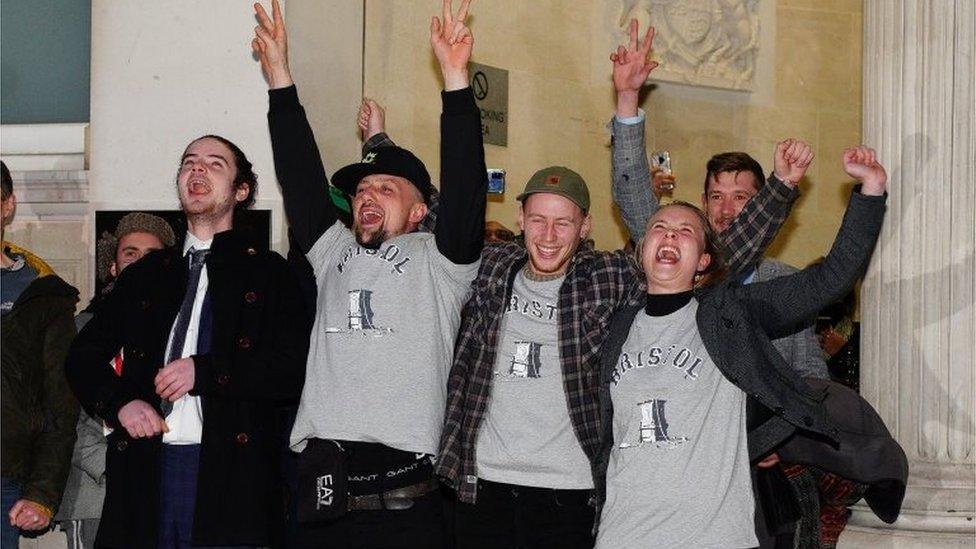Extinction Rebellion co-founder's trial delayed by Colston review
- Published
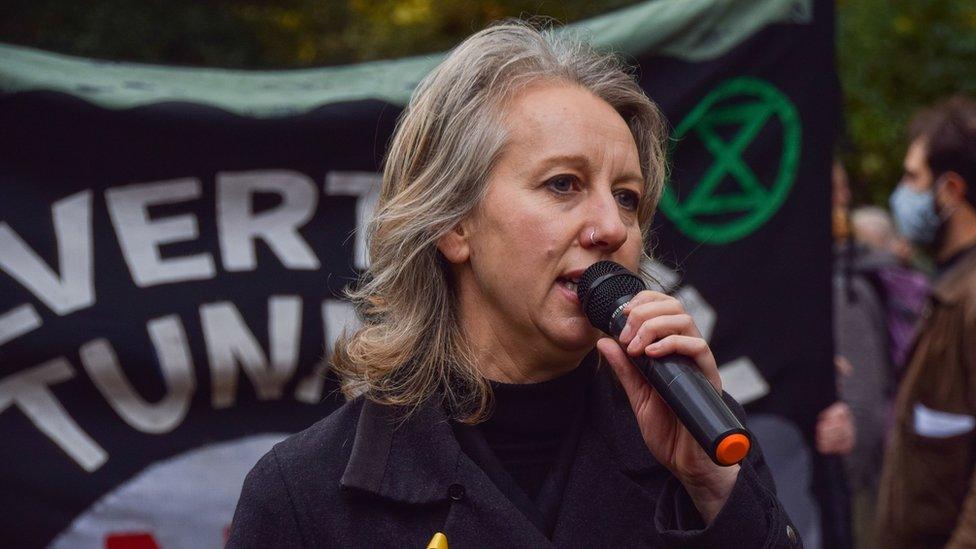
Gail Bradbrook's trial was due to begin next week
The trial of an Extinction Rebellion co-founder has been delayed pending a High Court judgment over the 2020 toppling of the Edward Colston statue.
The trial of Gail Bradbrook, who is accused of damaging the Department for Transport building during a protest in 2019, was due to start on Monday.
Attorney General, Suella Braverman, asked for the advice around the Bristol case to be reviewed.
Because of this, Ms Bradbrook's trial has been delayed until November.
The 49-year-old appeared at Isleworth Crown Court on Tuesday accused of causing £27,500 in damage to the Department for Transport building in Westminster by smashing a plate-glass window during an environmental protest in London on 15 October.
Earlier this month Ms Braverman asked the Court of Appeal to clarify the circumstances in which defendants can cite their human rights as a defence in a criminal damage case.
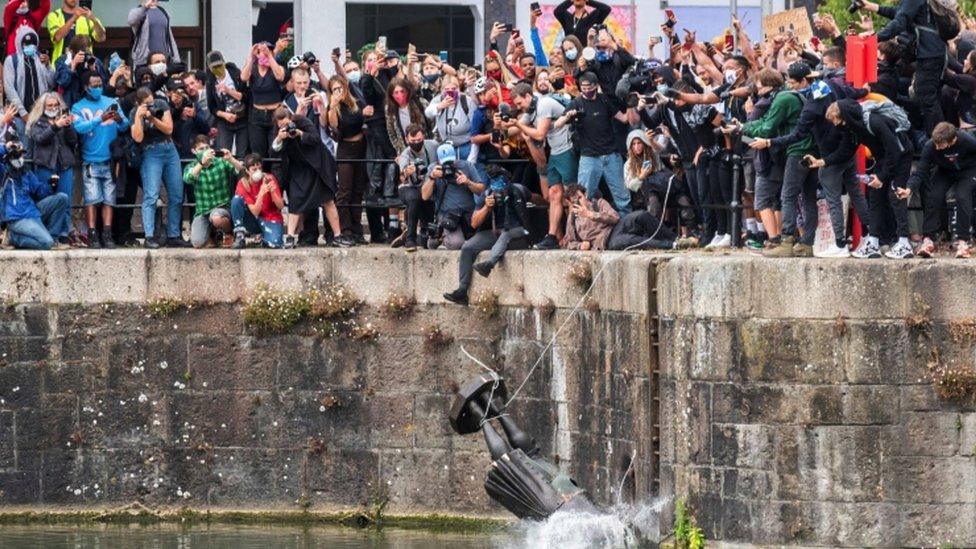
Edward Colston's statue was pulled down during a Black Lives Matter Protest in Bristol in June 2020
The referral was made in wake of the acquittals of four people accused of pulling down the statue of slave trader Edward Colston during a Black Lives Matter protest in Bristol.
Judge Martin Edmunds cited the case in his decision to delay Ms Bradbook's trial, saying: "The trial, which is listed today, can't go ahead because the Attorney General has referred to the Court of Appeal the legal questions that arose from the Bristol case."
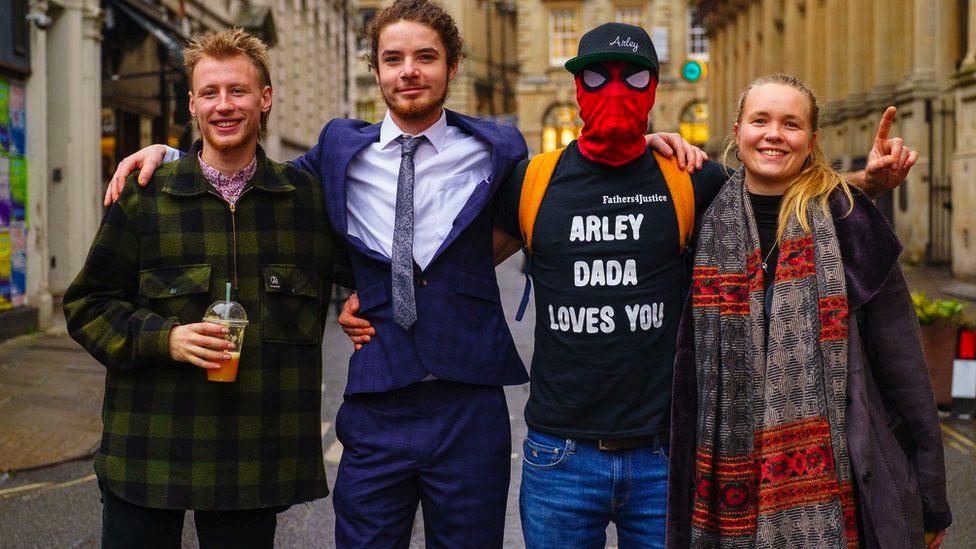
The protesters who became known as the Colston Four were found not guilty
Rhian Graham, 30, Milo Ponsford, 26, Sage Willoughby, 22, and Jake Skuse, 33, were acquitted of criminal damage after acknowledging their involvement in toppling the statue.
Jurors in their trial were asked to decide if they believed that a conviction for criminal damage was a "proportionate interference" with the defendants' human rights of freedom of expression, thought and conscience.
Ms Bradbrook was released on unconditional bail.
She is set to return to Isleworth Crown Court for a five-day trial on 21 November.

Follow BBC West on Facebook, external, Twitter, external and Instagram, external. Send your story ideas to: bristol@bbc.co.uk , external
Related topics
- Published13 April 2022
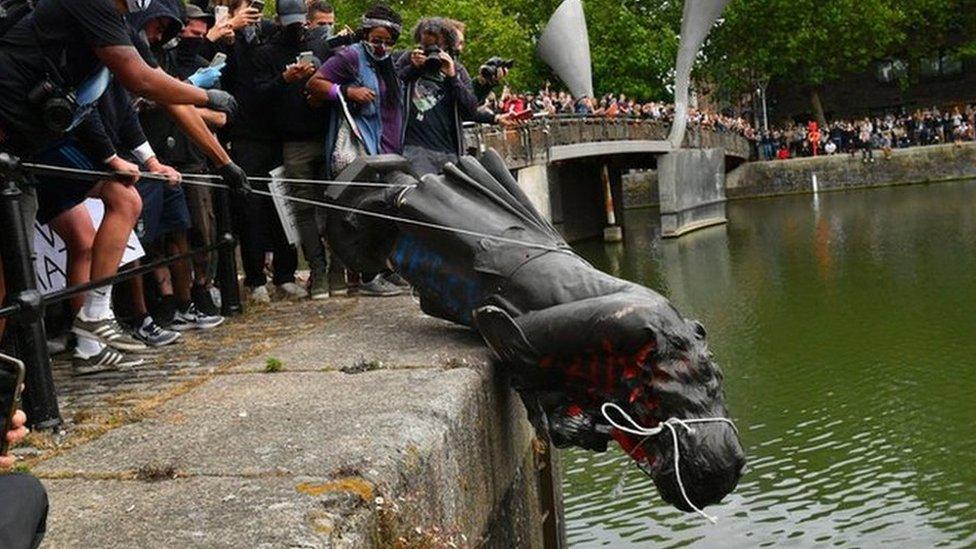
- Published6 January 2022
